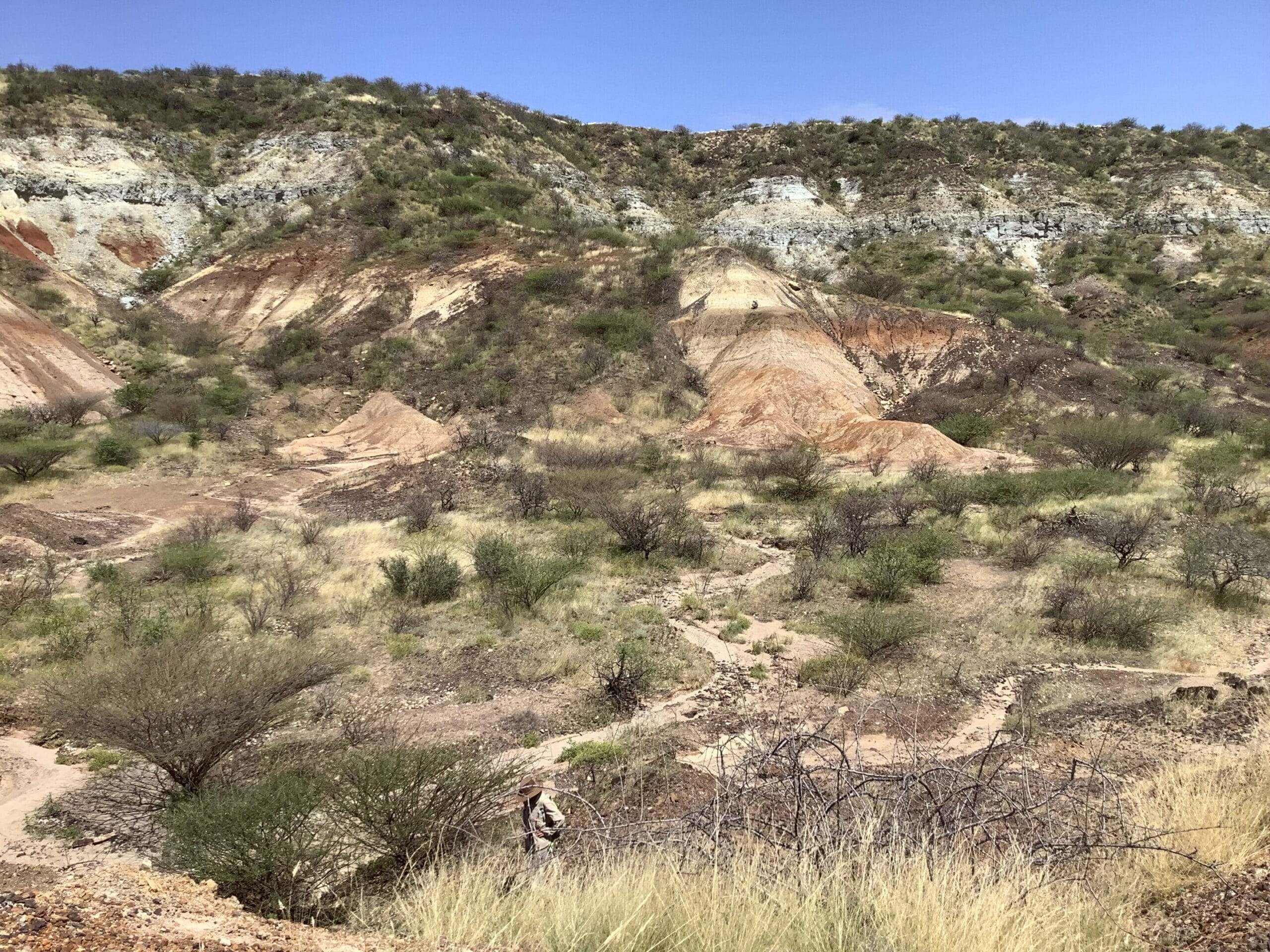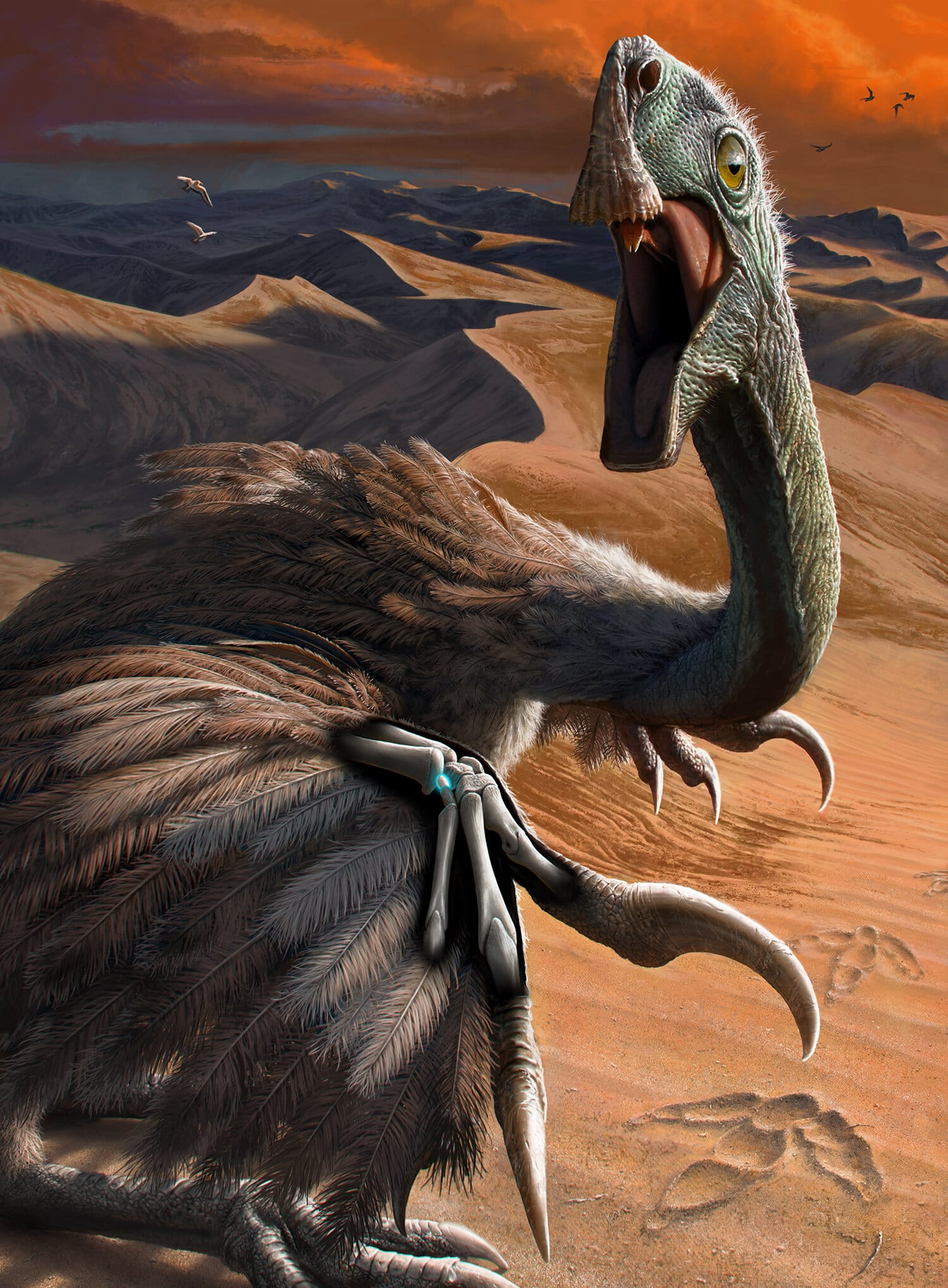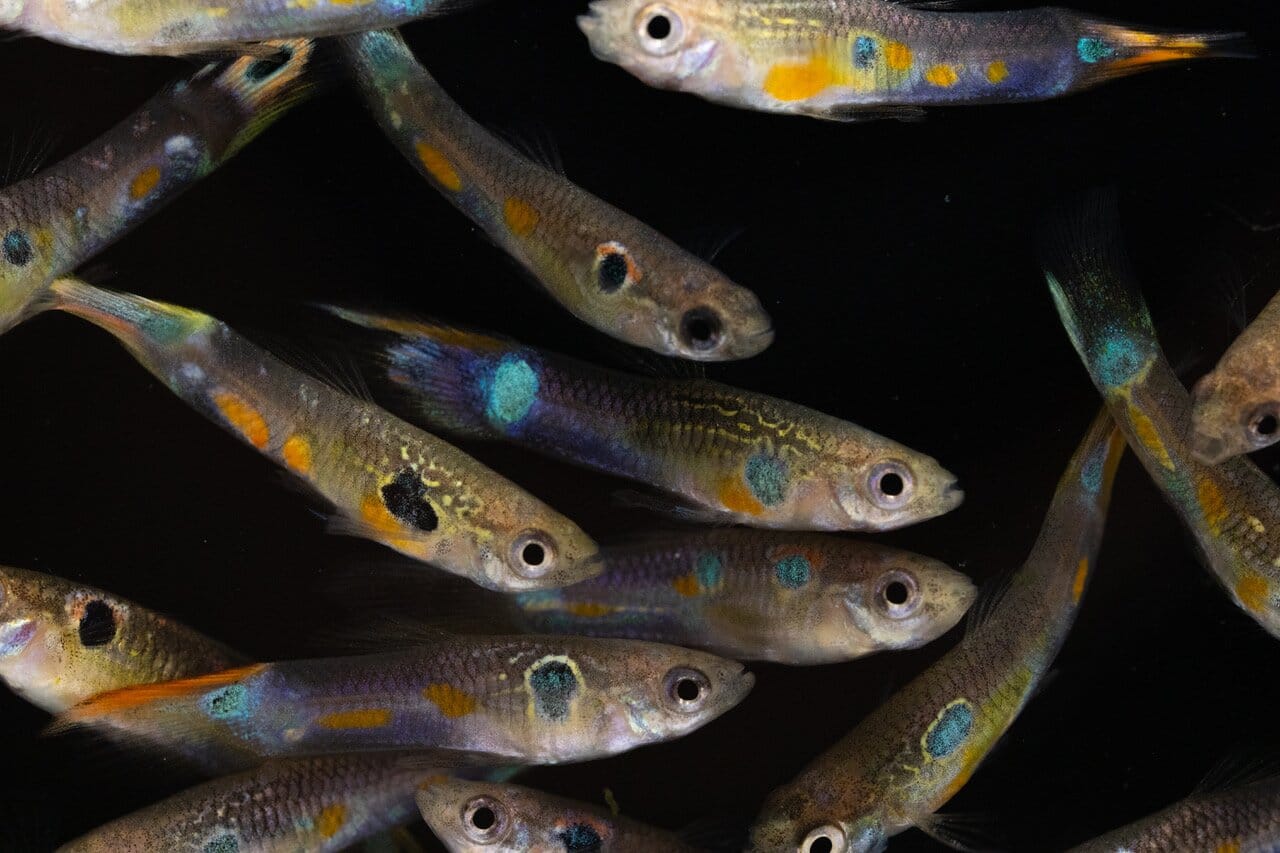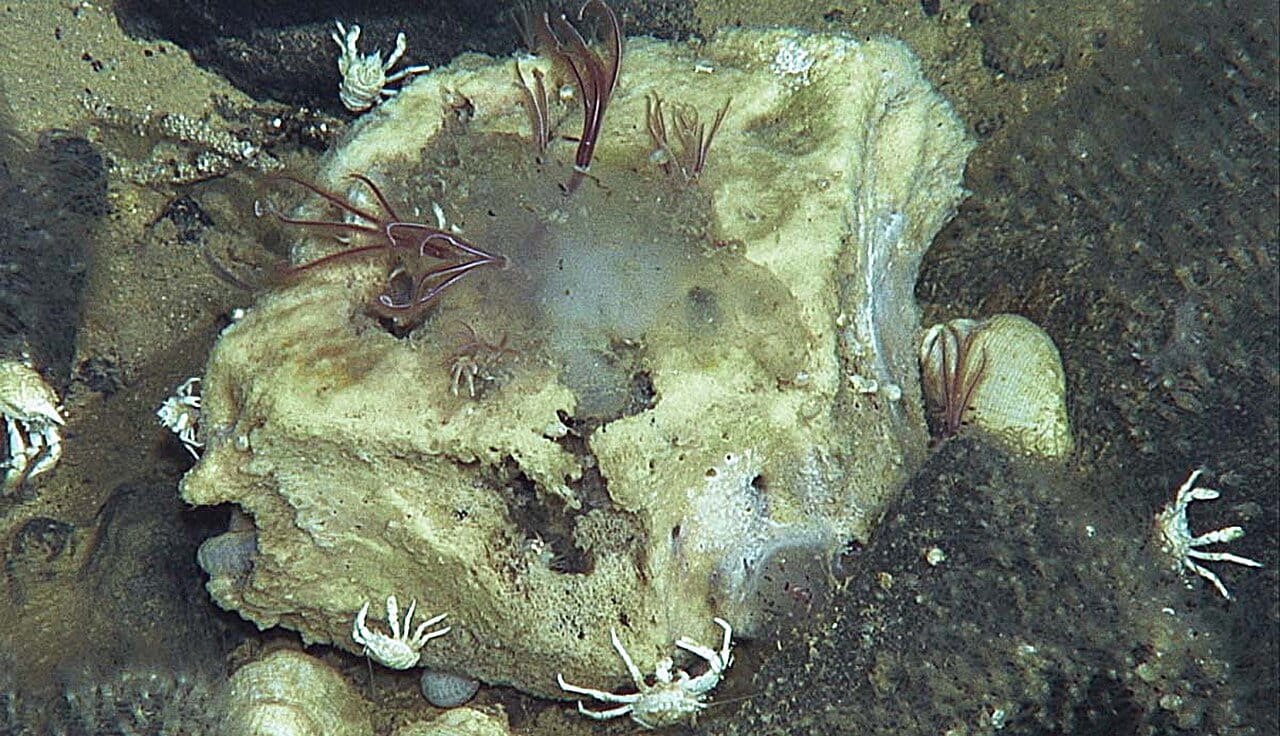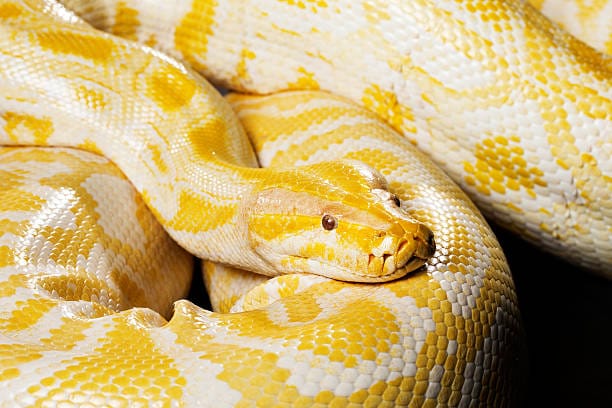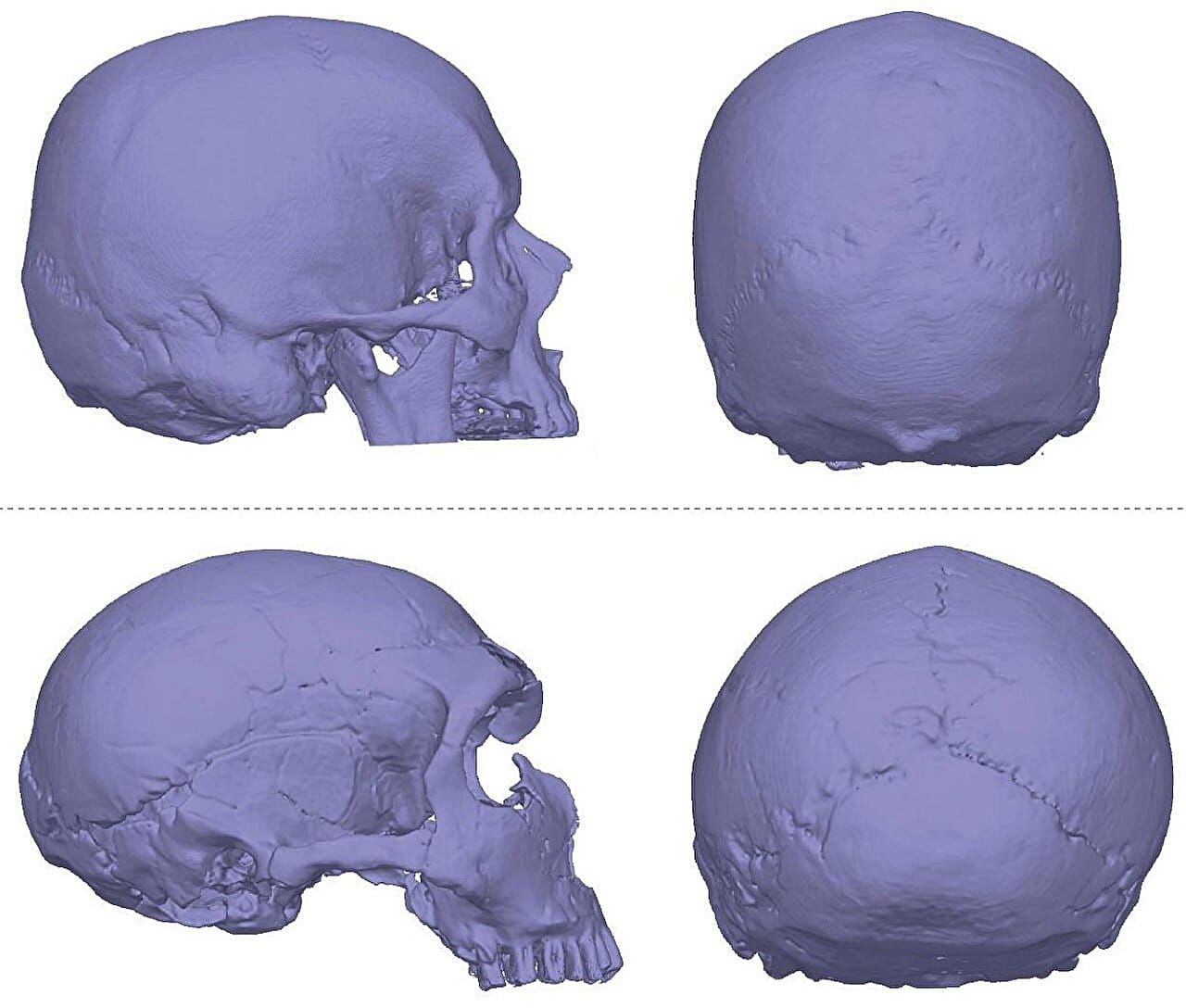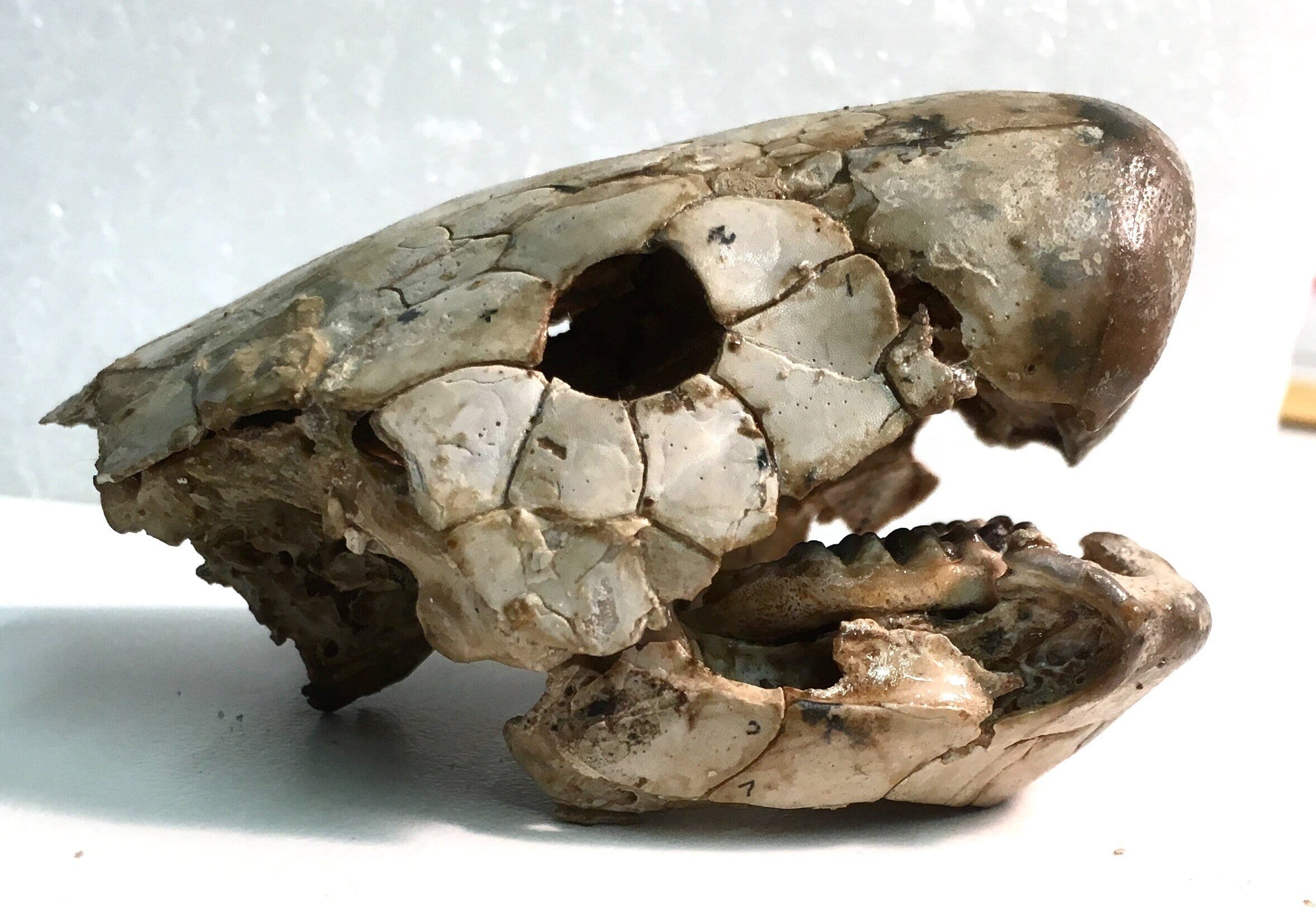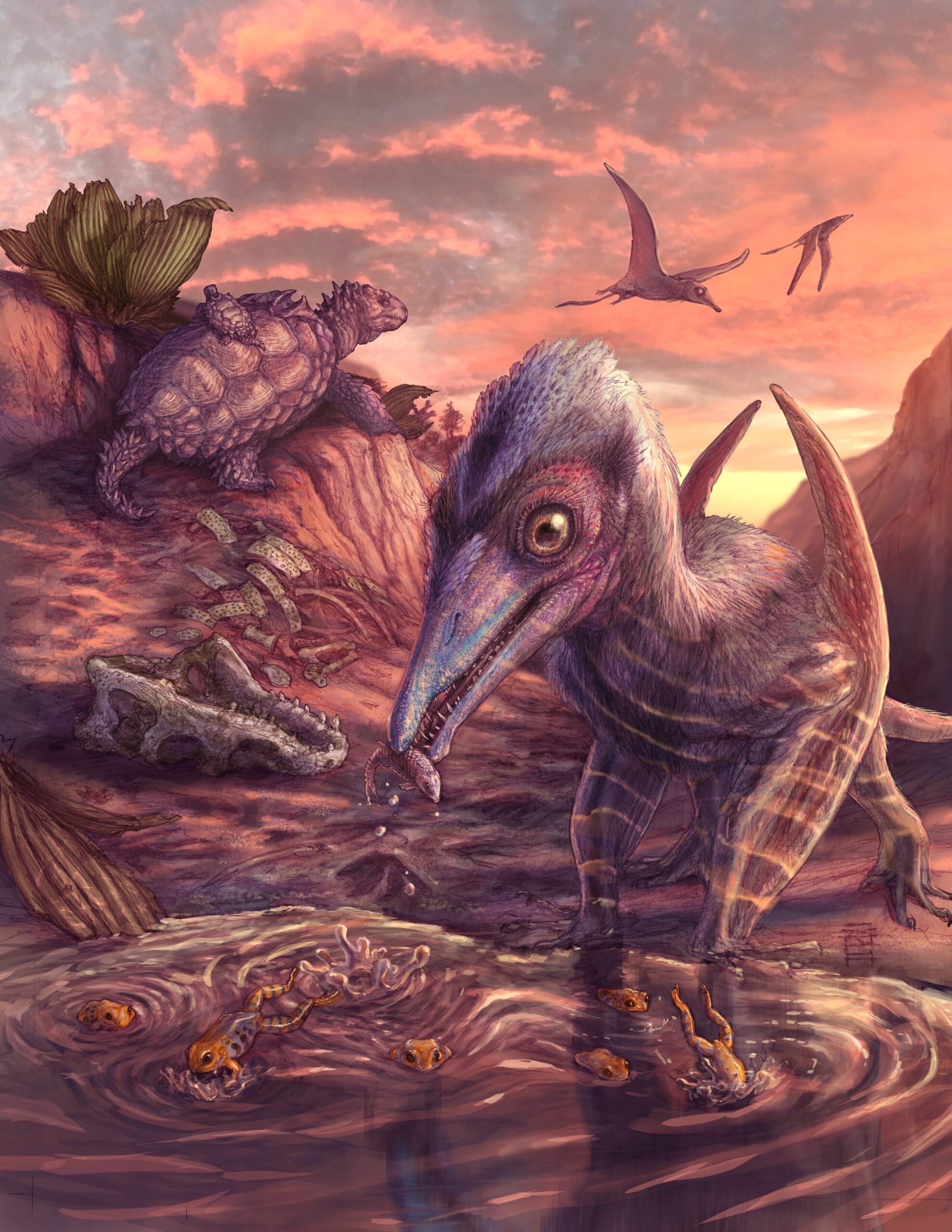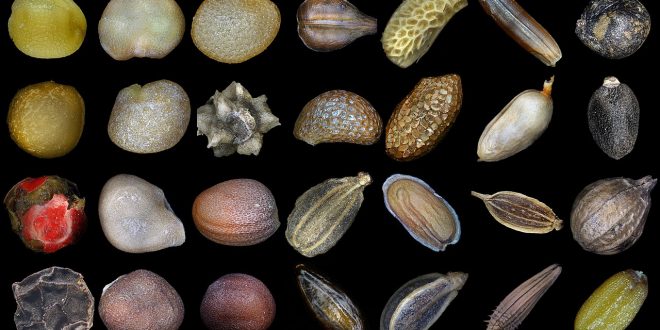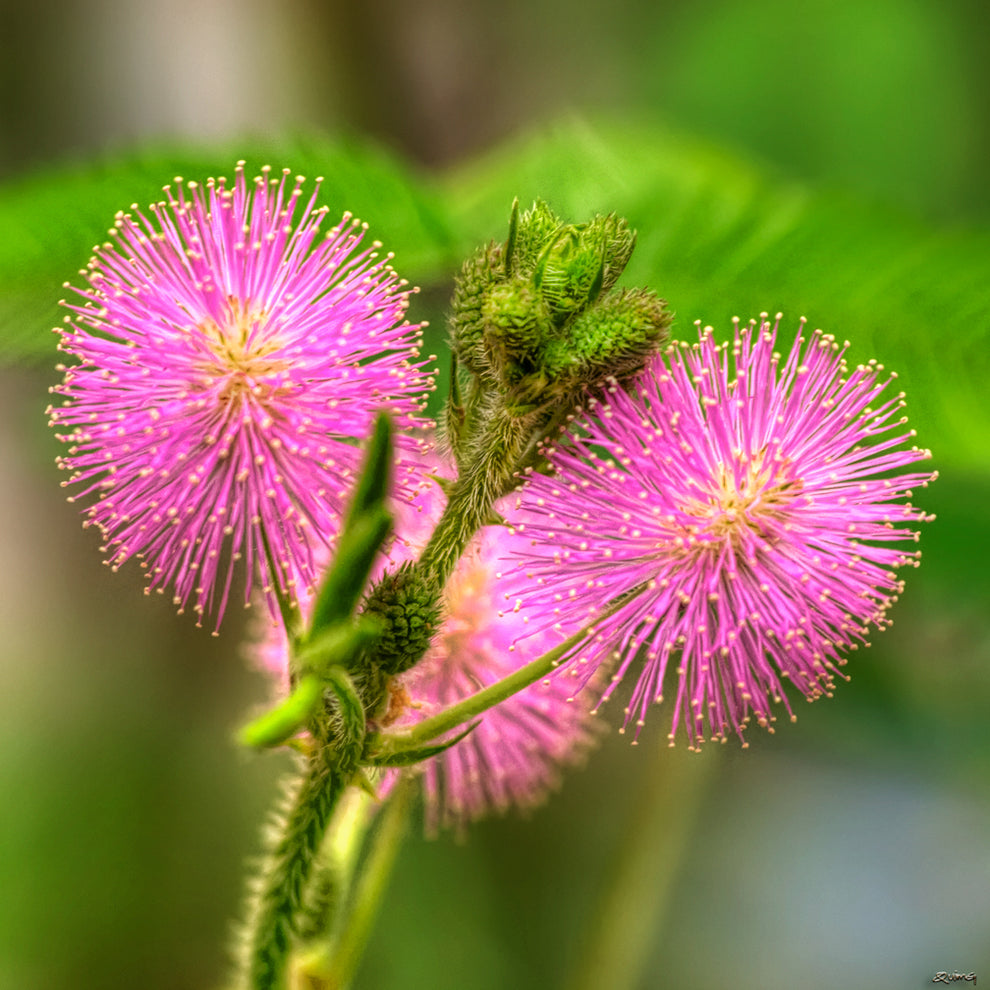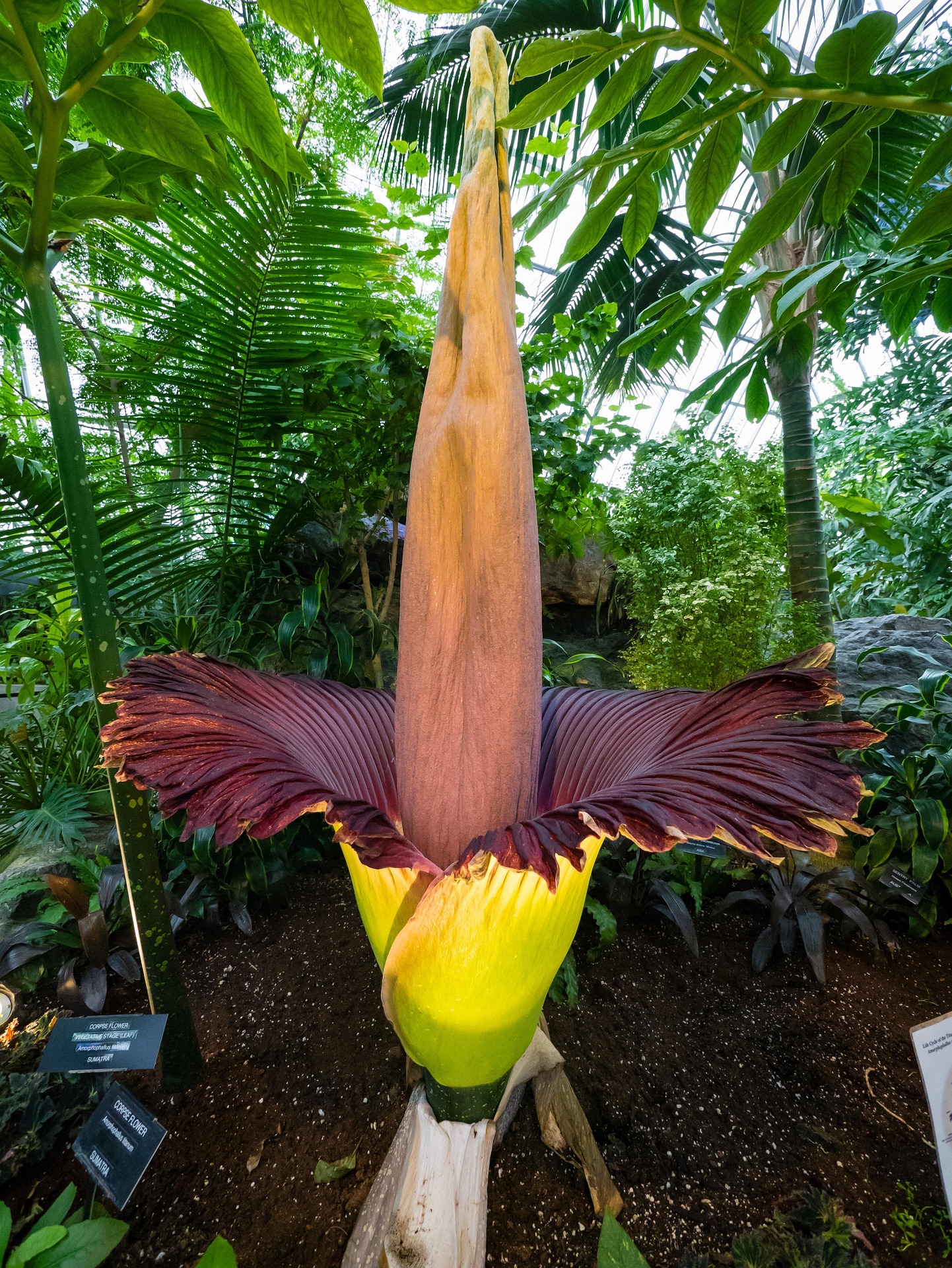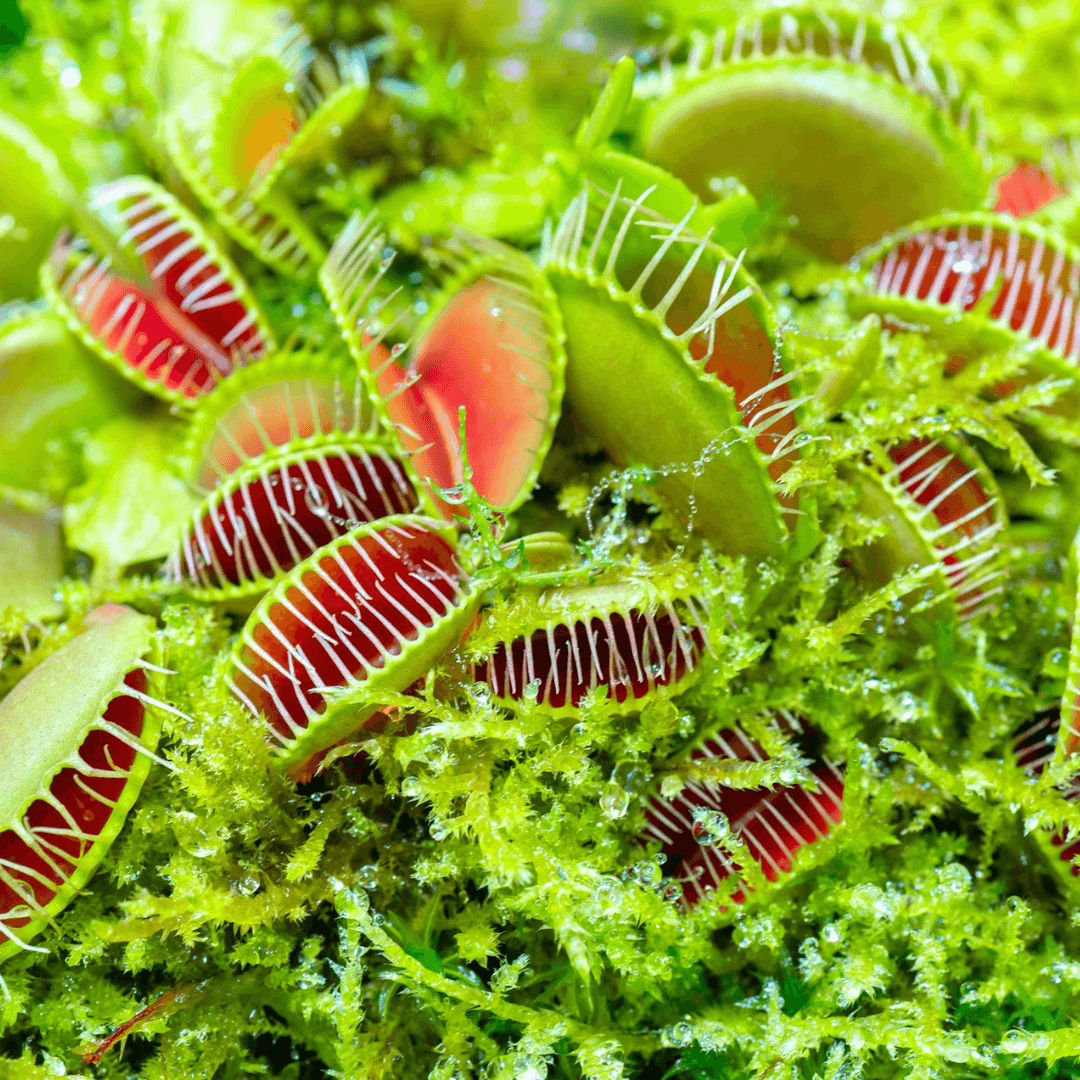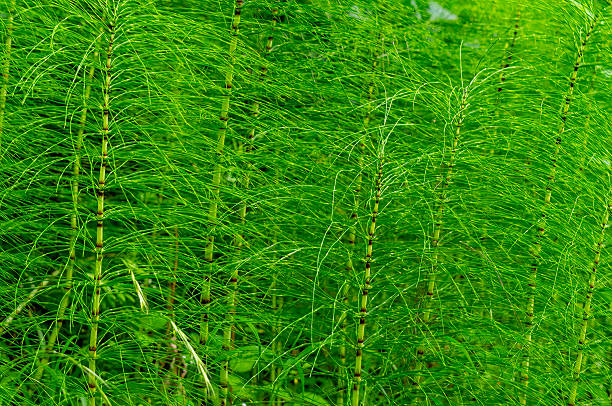High in the Himalayas, where oxygen is thin and the cold bites to the bone, humans carved out life long before we ever imagined. Now, a groundbreaking genomic study reveals…
Category: Biology
Ancient Proteins Whisper Secrets from 18 Million-Year-Old Teeth in Kenya
In the searing heat of Kenya’s Rift Valley, where rust-colored dust coils around the acacia trees and the distant silhouettes of elephants march against the horizon, scientists have unearthed a…
The Dinosaur Wrist Bone That May Have Laid the Groundwork for Flight
Imagine, for a moment, that you’re standing at the edge of a prehistoric world. The ground shakes as massive theropod dinosaurs—those swift, birdlike hunters—move through the dense foliage. But what…
Why Guppies’ Orange Colors Could Be a Sign of Their Virility
When you think of the vibrant, kaleidoscopic hues of tropical fish, the guppy is likely one of the first to come to mind. With its iridescent orange, red, and blue…
Bone-Eating Worms That Dined on Dinosaurs Still Feast Beneath the Sea
Far below the ocean’s sunlit ripples, a drama has been unfolding for more than a hundred million years—a secret, silent feast upon the bones of giants. When colossal marine reptiles…
The Secret Cells That Let Pythons Devour Bones Without a Trace
In the quiet shadows of the rainforest floor, a Burmese python slides silently through leaf litter, its tongue flicking out, tasting the warm scent of life. When it strikes, its…
AI Designs a Superbug Killer in Seconds and Signals a New Era of Medicine
On a quiet morning in an Australian laboratory, a revolution unfolded—not with the roar of engines or the crackle of rocket fuel, but in the invisible world of proteins. In…
These Plants Know What Time It Is—Without a Clock
Just before dawn, a field of sunflowers stands poised, their green faces still turned to the east, waiting. A hush lies over the world. Then the sun crests the horizon,…
Meet the Grass That Can Kill a Lion
Beneath the endless African sun, the savanna breathes like a living ocean. Rippling waves of gold and emerald grass stretch to distant horizons, trembling in shimmering heat. From the rocky…
The Hidden Legacy of Neanderthals: Could Ancient DNA Be Causing Modern Headaches?
It’s a curious connection—headaches, dizziness, blurred vision, and balance problems. While these symptoms are often dismissed as part of a busy, modern lifestyle, they might actually have a more ancient…
Ancient Fish Jaws Reveal Secrets of How Life Crawled Onto Land
Deep in the remote outback of northern Western Australia, red cliffs rise beneath a searing sun. Amid these ancient rocks, silent fossils lie entombed—time capsules from an age when strange…
The Tiny Ash-Winged Dinosaur Cousin That Took Flight 209 Million Years Ago
Under an unforgiving Arizona sun, where rattlesnakes slide among painted rock canyons and wild horses roam the ochre hills, a team of paleontologists stumbled upon a portal to a forgotten…
Seeds That Sleep for Centuries—Then Suddenly Wake Up
In the remote reaches of Earth, beneath layers of soil, nestled in cracks of ancient rock, and encased in deep layers of ice, lie dormant seeds. These seeds, quietly slumbering,…
How Some Plants Remember and Learn Without a Brain
For centuries, humans have been taught that cognition—learning, remembering, and reacting—is something exclusive to animals with brains, and most notably to humans with our vastly complex neural networks. However, as…
The Creepy Genius of the Corpse Flower
On a humid night in the dense jungles of Sumatra, an ancient plant prepares for one of the rarest spectacles in the natural world. The corpse flower, or Amorphophallus titanum,…
This Plant Can Move Like an Animal—Watch It Hunt
In the deep, lush heart of the rainforests, where sunlight struggles to pierce the thick canopy of leaves, a silent battle rages. But this is not the familiar struggle of…
Can Trees Really Communicate Through a “Wood Wide Web”?
Imagine walking through a quiet forest, the sunlight filtering through the canopy, the gentle rustle of leaves playing a natural symphony. While to the untrained eye, this might seem like…
The Ancient Plant That Survived Dinosaurs—and Might Outlive Us
Long before the thunderous steps of the Tyrannosaurus rex echoed across primeval floodplains, before the first flower dared to bloom, before mammals even dreamed of waking from the forest floor,…
Inside the World’s Oldest Living Organism
Under the cobalt skies of central Utah, amid the dry mountains and the whisper of wind through trembling leaves, stands an ordinary-looking forest. The trunks shimmer pale white, marked by…
Plants That Glow in the Dark—and the Science Behind Their Light
Imagine walking through a dense forest just after dusk, your eyes adjusting to the fading light, the air cool and moist with the breath of leaves and earth. Suddenly, a…
Why Do Some Plants Bleed When They’re Hurt?
In a sun-drenched forest clearing, a young naturalist pushes gently through a thicket of euphorbia shrubs. She reaches out, curious, and snaps a twig. From the wound, a milky white…

